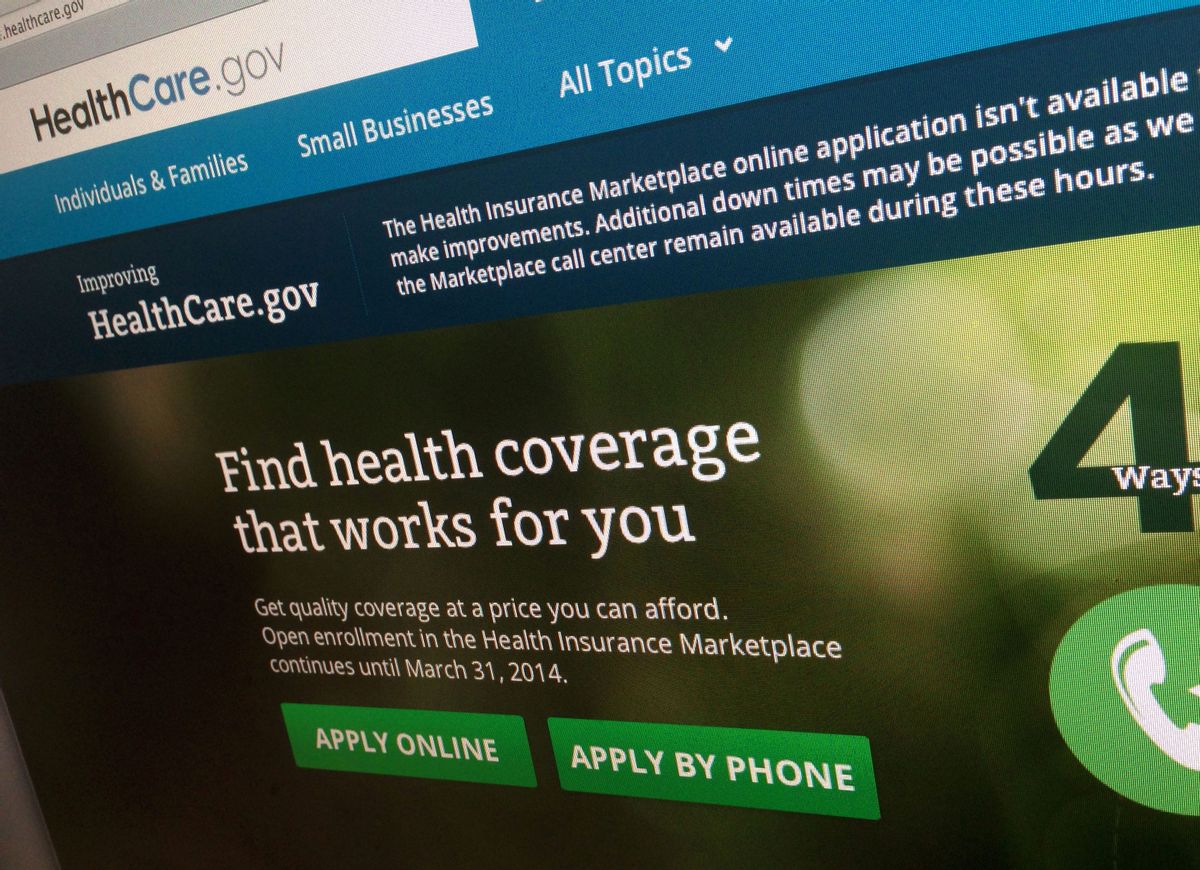WASHINGTON (AP) — The clock is ticking for hundreds of thousands of people who have unresolved issues affecting their coverage under the new health care law.
The Obama administration said Tuesday that letters are going out to about 310,000 people whose citizenship or immigration details don't match what the government has on file.
These consumers need to send in their documentation by Sept. 5. Otherwise their coverage will end Sept. 30.
Of the 8 million people who signed up for private coverage through President Barack Obama's law, more than 2 million at one point had discrepancies of some sort that affected their eligibility. That number has been greatly reduced — but the remaining cases are proving difficult to resolve.
People living in the country illegally are not allowed to get coverage. Officials at the Health and Human Services Department said the letters will notify consumers with unresolved citizenship and immigration issues that they can upload their documents to the HealthCare.gov website, or mail them in.
Most haven't responded to repeated outreach efforts, officials said. Hispanics, who historically have lagged in health insurance coverage, may account for a big share of the group.
Indeed, two states with large Latino populations top the list of unresolved cases. Florida has 93,800 cases, while Texas has 52,700. Georgia, Virginia and Pennsylvania round out the top five. The letters are being sent in English and Spanish.
The next five states are North Carolina, Illinois, Michigan, New Jersey and Louisiana.
The new policy affects the 36 states where the federal government has taken the lead in running online insurance markets created by the law. It's unclear how it will apply in places like California and New York, which are running their own insurance exchanges.
Some supporters of the law worried that eligible consumers might lose coverage due to record-keeping problems on the government's part, or because of something as mundane as letters getting lost in the mail.
"Many of these people have issues because government files are incomplete," said Ron Pollack, executive director of the advocacy group Families USA. "Many may feel that they have fully complied with what is necessary to get health coverage."
The number of problem cases was a lot larger only a few months ago, prompting criticism from congressional Republicans that the administration was signing up people ineligible under the law.
In May, there were nearly 970,000 people with citizenship or immigration problems. About half those cases have now been closed, officials said, and another 20 percent are being worked on actively. Officials have previously said that the overwhelming majority of cases are resolved in favor of the enrollee.
Consumers who have unresolved discrepancies over their incomes will get notices at a later date.
The new health law provides subsidized coverage to people with no access to health insurance on the job. More than 80 percent of those signed up are getting subsidies to help with their premiums and, in some cases, their copays and deductibles as well.
But those taxpayer subsidies are contingent on meeting a host of requirements. The amount of a consumer's premium tax credit can vary by income, family size, hometown and other factors. That can make getting covered through the law feel somewhat like doing your taxes.
The letters that started going out Tuesday won't be the final attempt to reach those with unresolved issues. HHS will try to contact each consumer two more times by phone and once via email. The administration is also working with local organizations to try to reach people directly in their homes.
Consumers can also contact HealthCare.gov's call center at 800-318-2596 to see what documents they need to submit and see whether their information has been received.
The notices affect this year's coverage only.
The open enrollment period for this year is over. Open enrollment season for 2015 coverage doesn't start until Nov. 15. At that point, consumers will be able to renew or make changes in their coverage, and new customers can find out whether there's a plan that's right for them.
Under the law, most Americans are required to have health insurance or risk fines.



Shares